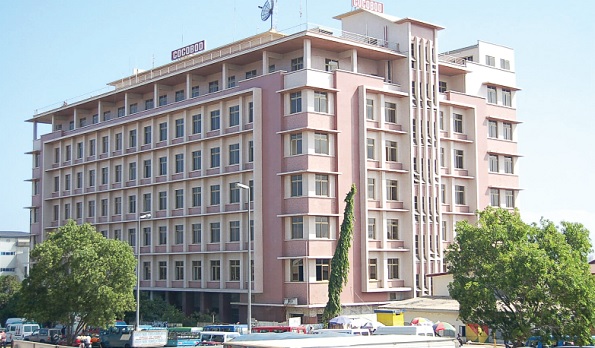
The IMF Bailout and Ghana COCOBOD
In May, the International Monetary Fund made public the full report on Ghana’s request for a bailout.
I wrote back then, highlighting aspects of the report and the challenges ahead for the government.
I revisit the concerns raised about the operations of COCOBOD and the demand for reforms.
This is what the report said, “Ghana’s Cocoa Board (Cocobod)—the state-owned entity mandated with facilitating cocoa production and exercising export monopoly—has accumulated annual losses for many years due to high rollover cost of outstanding cocoa bills, high purchase price to cocoa producers compared to its operational costs, and elevated quasi-fiscal operations (e.g., fertiliser provision, rural roads development) that have also been a burden on the Board’s administrative expenses.”
Certainly, the picture painted is concerning.
The report further notes – “The authorities will prepare a turnaround strategy to ensure Cocobod’s financial viability.
This strategy will include (i) designing a sustainable and legally binding framework for setting a producer purchase price (PPP) that guarantees an income stream sufficient to recover the Cocobod’s operational and financial costs, (ii) announcing cost rationalisation measures and (iii) phasing out quasi-fiscal activities.”
Cocoa Producer Price
There is a Producer Price Review Committee (PPRC).
The committee recommends a price which is determined at the beginning of the season in October and remains in place through September of the following year.
The pricing formula has two main components –revenue estimation and deductions (operational costs).
The eventual price reflects the government’s expected revenue, the anticipated operational costs of COCOBOD, the estimated crop size and the freight on board percentage the government wants to offer cocoa farmers.
Anyone who pays close attention will notice that typical government behaviour is increases in the producer price.
There are very few instances of maintaining the price level from a previous season.
I do not recall any instance of a reduction in the producer price.
Anytime I look at the pricing formula and the interest in paying farmers a higher price for their cocoa, I realise it is possible if the operational costs are kept to the bare minimum.
Here is the government’s dilemma.
They do not control two critical components of the revenue estimation side of the formula – exchange rates and crop size.
In addition, the government has to balance two competing interests – a) offering an acceptable price to cocoa farmers that allows them to afford a decent living; b) ensuring that government earns the needed foreign exchange; c) insulating itself against the politics of cocoa produce price setting.
Our two major parties regularly engage in a) who offered a better price to cocoa farmers as the ruling party; and b) why a higher price was not offered as the opposition party.
Phasing Out
Quasi-Fiscal Activities
The IMF raises concerns about the administrative burden of COCOBOD’s quasi-fiscal activities.
What are these quasi-fiscal activities?
The report mentions two – fertiliser provision and rural road development.
Others I can think of are the mass spraying of cocoa farms, providing high-yield seedlings to farmers, rehabilitation of cocoa roads, etc.
These quasi-fiscal activities offer incentives to those whose sweat and toil sustain the sector.
Our governments know that.
They also are fully aware of the sector’s many contributions to the economy, especially the guarantee of foreign exchange earnings.
The guarantee is one of the reasons why no government has yet yielded to full liberalisation of the cocoa sector.
I understand the concerns of the IMF.
In the context of a bailout, priority will be placed on ensuring that the beneficiary country gets its fiscal house in order.
This means having to adhere to the difficult demands of the benefactor.
I am concerned about the impact of phasing out these quasi-fiscal activities.
Does it mean that governments can no longer offer these incentives to cocoa farmers?
And if they can’t, what are the implications for the long-term viability of the sector and its contribution to the country’s economy?
The government must balance two competing demands here – compliance with the conditions of the IMF programme whiles at the same time offering the necessary incentives to encourage cocoa farming.
Maybe the government can shift these activities from COCOBOD and then find ways to make reasonable accommodations within the fiscal envelope in the annual budget process.
Announcing Cost Rationalisation Measures
Simply put, COCOBOD must cut its operational expenditure.
How it does that will be driven by how well government can balance adhering to the dictates of the IMF bailout programme and the competing interests of all domestic actors in the cocoa sector.
In Attachment I, Memorandum of Economic and Financial Policies, Point 50, the government indicated that Cabinet would approve a turnaround strategy for Cocobod by the end of June 2023, which will be published.
It will be instructive to see how the government resolves the challenges of COCOBOD.
The writer is a fellow at the Centre for Democratic Development-Ghana (CDD-Ghana)
